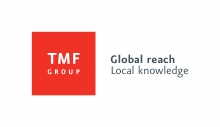As the 2008-09 recession fades from memory and credit conditions improve, many companies are considering expanding into new markets. In doing so, they face a multitude of challenges spanning the range of corporate functions.
This report is based on a survey of 155 senior executives and 11 in-depth interviews with experts who have special knowledge of the issues involved in their companies' expansion into foreign markets. The main findings of the research are presented below.
A desire to open new markets and gain market share drives corporate expansions abroad. This is especially the case for European countries, as sluggish growth in domestic markets has encouraged many European companies to seek stronger returns overseas. As James Kidd, CFO at the UK-based multinational information technology company AVEVA, explains: "We do take inspiration from the demands of other markets."
Many companies seek support from governments and chambers of commerce. Around half of survey respondents rely on resources provided by their local government and/or chamber of commerce, especially North American respondents. Support from governmental agencies and chambers of commerce also features highly across business areas, including legal/compliance, HR/administration and accounting/tax. Chris Southworth, director of the International Chamber of Commerce (UK), says that it is not unusual to find big-brand companies with no export experience at board or executive level, which is likely to be one factor for a reliance on support from trade organisations such as chambers of commerce.
The socioeconomic circumstances in the target country are the biggest physical location issue in corporate overseas expansion. This concern is linked to the above-mentioned desires to access new markets and/or gain market share. Perhaps connected to the socioeconomic factor, the second-biggest concern is exchange-rate volatility. Among the job functions surveyed, CFOs view physical location issues in the corporate expansion process with particular concern.
Concerns about data protection and privacy laws are the biggest legal/compliance issue. This is particularly the case for COOs and general counsels/CLOs as well as for respondents based in Europe. However, general counsels/CLOs are more likely than other functions in advocating in-house control of the legal and compliance aspects of the expansion, while many COOs prefer using external experts in this field.
Local employment customs, practices and laws are the main concern for HR/payroll. Those interviewed for this report agree that maintaining company culture while respecting local customs and cultural differences is a fundamental objective for a successful international expansion. Jose Papa Neto, chief executive of global fashion-trend forecasting company WGSN, says that “being aware of and adapting our operations to accommodate for the complexities of individual markets—from sales strategies and respecting culture to local HR practices—while maintaining our core operating principles” is crucial to undertaking an expansion.
Excessive bureaucracy in the local tax system is rated as the biggest accounting issue for businesses expanding overseas. COOs and senior payroll professionals see this as a particular issue. By contrast, a country's level of taxation seems to be far less of a concern in companies' expansion projects than might have been expected.






